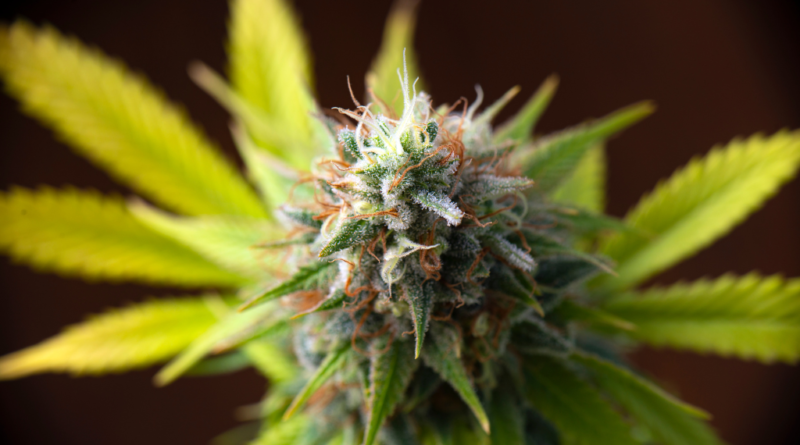Cannabis Oil: Nature’s Healing Extract
Cannabis oil, derived from the cannabis plant, has gained significant attention in recent years for its potential therapeutic benefits. As more people seek natural remedies for various health issues, this extract has emerged as a promising option. This article explores the origins, benefits, and applications of cannabis oil, supported by research and real-world examples.
Understanding Cannabis Oil
Cannabis oil is extracted from the flowers, leaves, and stalks of the cannabis plant. It contains a variety of compounds, including cannabinoids, terpenes, and flavonoids. The two most well-known cannabinoids are cannabidiol (CBD) and tetrahydrocannabinol (THC). While THC is psychoactive and responsible for the “high” associated with cannabis, CBD is non-psychoactive and is often credited with many of the plant’s therapeutic properties.
Types of Cannabis Oil
- CBD Oil: Primarily contains cannabidiol and is used for its potential health benefits without the psychoactive effects.
- THC Oil: Contains higher levels of tetrahydrocannabinol and is often used for recreational purposes or in medical settings where THC’s effects are desired.
- Full-Spectrum Oil: Includes a wide range of cannabinoids, terpenes, and other compounds, offering an “entourage effect” where the components work synergistically.
- Broad-Spectrum Oil: Similar to full-spectrum but with THC removed, providing benefits without the psychoactive effects.
Health Benefits of Cannabis Oil
Research into cannabis oil’s health benefits is ongoing, but several studies and anecdotal evidence suggest its potential in various areas.
Pain Relief
One of the most common uses of cannabis oil is for pain management. Studies have shown that cannabinoids can interact with the body’s endocannabinoid system to reduce inflammation and alleviate pain. For instance, a study published in the European Journal of Pain demonstrated that CBD applied on the skin could help lower pain and inflammation due to arthritis.
Anxiety and Depression
Cannabis oil, particularly CBD, has been explored for its potential to reduce anxiety and depression. A study in the journal Neurotherapeutics found that CBD may help reduce anxiety in people with certain related disorders. Its non-psychoactive nature makes it an appealing option for those seeking relief without the mind-altering effects of THC.
Epilepsy and Seizures
One of the most well-documented uses of cannabis oil is in the treatment of epilepsy. The FDA has approved a CBD-based medication, Epidiolex, for treating certain types of epilepsy. Clinical trials have shown that CBD can significantly reduce the frequency of seizures in patients with conditions like Dravet syndrome and Lennox-Gastaut syndrome.
Skin Conditions
Cannabis oil is increasingly used in skincare products due to its anti-inflammatory properties. It may help with conditions such as acne, eczema, and psoriasis. A study in the Journal of Clinical Investigation found that CBD can help reduce the production of sebum, which contributes to acne.
Case Studies and Real-World Applications
Several case studies highlight the potential of cannabis oil in real-world applications. For example, a case study published in the Permanente Journal reported on a young girl with post-traumatic stress disorder (PTSD) who experienced a significant reduction in symptoms after using CBD oil. Her sleep quality improved, and her anxiety levels decreased, showcasing the oil’s potential in managing PTSD symptoms.
In another instance, a study in the Journal of Pain Research examined the effects of cannabis oil on patients with chronic pain. Participants reported a reduction in pain intensity and improved sleep quality, indicating the oil’s potential as a complementary therapy for chronic pain management.
Legal and Safety Considerations
The legal status of cannabis oil varies worldwide, with some countries allowing its use for medical purposes and others imposing strict regulations. In the United States, the 2018 Farm Bill legalized hemp-derived CBD products containing less than 0.3% THC. However, state laws differ, and it’s important for consumers to be aware of local regulations.
Safety is another consideration when using cannabis oil. While it is generally well-tolerated, some individuals may experience side effects such as fatigue, diarrhea, or changes in appetite. It’s advisable to consult with a healthcare professional before starting any new supplement, especially for those with underlying health conditions or who are taking other medications.
The Future of Cannabis Oil
As research continues, the potential applications of cannabis oil are likely to expand. Scientists are exploring its use in areas such as cancer treatment, neurodegenerative diseases, and addiction therapy. The growing interest in natural and holistic health solutions suggests that cannabis oil will remain a topic of interest for both researchers and consumers.
Conclusion
Cannabis oil represents a promising natural extract with a range of potential health benefits. From pain relief to anxiety reduction, its applications are diverse and supported by both scientific research and anecdotal evidence. As legal landscapes evolve and research progresses, cannabis oil may become an increasingly accessible and valuable tool in the pursuit of health and wellness.
